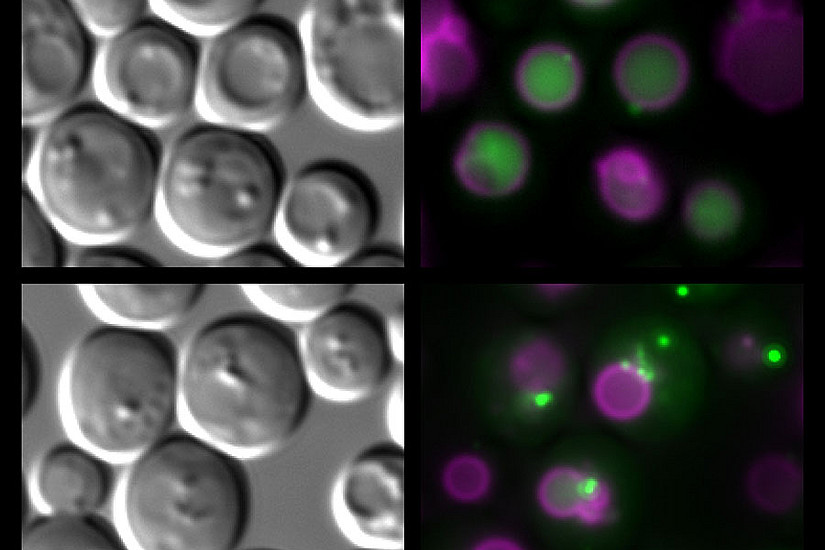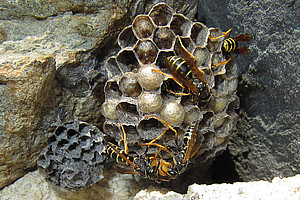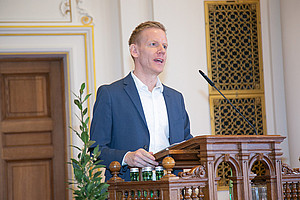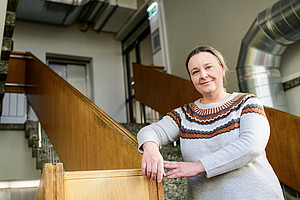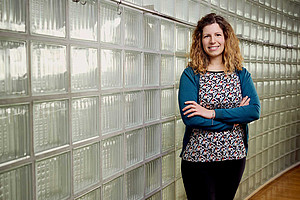Recycling is also a vital process in the cells of the human body. Using the process known as autophagy, cells break down defective and therefore potentially damaging proteins and organelles. This helps to counteract ageing, metabolic disorders and other diseases such as cancer. Tobias Eisenberg and his team at the University of Graz’s Institute of Molecular Biosciences have now been able to prove for the first time, using a yeast model, that certain newly produced lipids – fat molecules – are essential for this cleaning process. Their research findings have been published in the current edition of the Journal of Biological Chemistry.
The researchers experimented with modulating the step that determines the speed at which fatty acids are produced in the cell: the so-called Acetyl-CoA carboxylase (Acc1). Yeasts in which Acc1 was inhibited, so that they were only able to produce a limited quantity of lipids themselves, showed defective autophagy during ageing and a significantly higher mortality rate. In contrast, stimulation of Acc1 enhanced the autophagy competence of ageing cells. “This is an important insight for our understanding of this recycling process, and sheds new light on the significance of lipogenesis, i.e. the formation of new lipids,” says Eisenberg, summarising their findings.
The researchers believe that their discovery may also have relevance for metabolic disorders. The precise links will be investigated in further studies in corresponding disease models.
